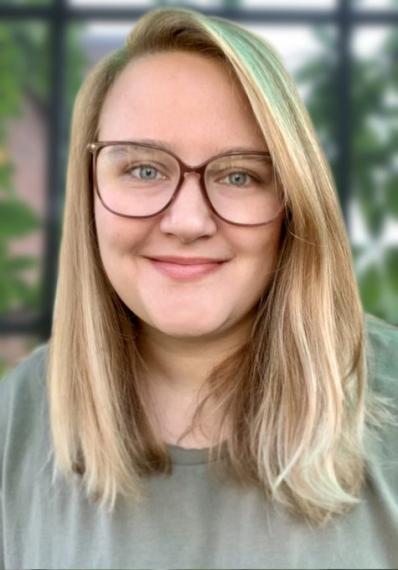Alice Marciniak

Assistant professor, Dairy Science
Phone: 519 824 4120 extension 52486
Email: amarcini@uoguelph.ca
Office: Food Science Building – Room 224
Website links:
LinkedIn https://www.linkedin.com/in/alice-marciniak-12629693/?locale=en_US
Google Scholar https://scholar.google.com/citations?user=Vj1w_OIAAAAJ&hl=en
Summary:
Alice Marciniak joined the department of Food Science in 2022 as an assistant professor in Dairy Science. Alice’s research goal is to contribute to better food quality, affordability and sustainability. There are 3 main research axes in her group:
I: Structure / Function Relation – Focused on understanding the relation between food structure and digestibility and functional properties. This research explores the interactions between food components (protein-protein and protein-other compounds) during processing, as well as modifications in the chemical and physical environment in relation to the functionality of the food matrix.
II: Separation Technology – Focused on the separation and purification of food compounds such as proteins, from various side streams for the production of functional, nutritional and high-value pure ingredients, concentrates and isolates.
III: Sustainability – Focused on utilizing food side streams and alternative sources of proteins, as well as emerging processing, to contribute to the circular economy and eco-efficiency approaches of the food system.
Academic History:
B.Sc. in Biochemistry - Lille University, France (2013) “Validation of food “Best By” dates and impact on nutritional, and sensorial properties”
M.Sc. in Nutrition, Food Science and Agri-food: Transformation, Industrial Valorization of Agri-Resources - Lille University, France (2015) “Agricultural food waste transformation for pyrolysis, combustion, feed and fertilisation”
Ph.D. in Food Science - Laval University, Canada(2018) “ The use of high hydrostatic pressure to modulate protein interactions and separate whey proteins”
Postdoctoral Fellowships: Ohio State University, USA (2019-2020) and Laval University, Canada (2020-2021)
Research Impact:
With a constantly growing population and increasing demand for proteins, along with environmental awareness, Alice is researching sustainable solutions using under-valued protein sources, such as industrial side streams and emerging protein sources, to produce better quality and affordable food. In relation to an eco-efficiency approach, she focuses on understanding how conventional and emerging processing can be used for functionalization of food proteins and provide a second life to these co-products. She believes that food industrial side streams are an unlimited gold mine of nutritional, functional and bioactive compounds waiting to be explored.
Current Research Projects:
How do dairy and plant proteins interact during processing ? (Ph.D.)
How can we valorize lactose-rich dairy side streams ? (M.Sc.)
How can we use the unique properties of Sorghum, an emerging protein source ? (Ph.D.)
How can we valorize solids-non-fat from skim milk and cheese whey on the farm ? (Ph.D.)
How do conventional and non-thermal pasteurization impact the skimming of colostrum ? (B.Sc.)
Mentoring Philosophy:
Alice strives to transmit to students her devotion and passion for research and provides guidance for them to develop their own identity as researchers. She ensures that students have opportunities 1) to learn new knowledge and complement their disciplinary backgrounds, 2) to develop and grow their professional and interpersonal skills and 3) to mentor and collaborate with juniors and peers.